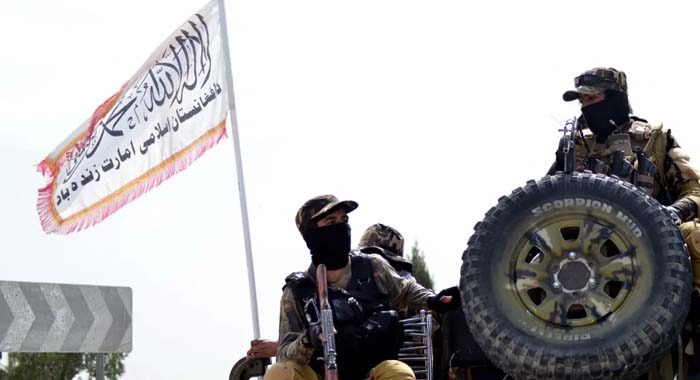Pakistan’s security forces have successfully foiled a major cross-border infiltration attempt by Fitnat-al-Khawarij terrorists in the North Waziristan region, eliminating 25 militants who sought to breach the country’s territorial boundaries. In the exchange of fire, five soldiers of the Pakistan Army embraced martyrdom, demonstrating unparalleled courage and sacrifice. This incident not only gives practical meaning to the concept of border defence but also reaffirms Pakistan’s firm resolve to safeguard its frontiers with absolute determination and without any compromise. The professionalism and valor displayed by the security forces once again prove that when a united nation stands to defend its sovereignty and honour, the malicious designs of its enemies crumble.
It is, however, deeply concerning that while Pakistan and the Afghan Taliban continue dialogue in Istanbul to promote peace and mutual understanding, infiltration attempts from Afghan soil persist. If the goal of these negotiations is truly to prevent Afghanistan from being used as a base for terrorism against Pakistan, then mere diplomatic rhetoric will not suffice concrete and verifiable action is essential. Pakistan has consistently voiced apprehensions that certain elements within Kabul are operating under a separate agenda, an agenda that runs contrary to regional stability and shared security. Such duplicity demands international scrutiny and transparency; if this agenda seeks to undermine Pakistan’s peace and security, it must be exposed and dismantled without delay.
Relations between Pakistan and Afghanistan continue to face complexity, primarily due to the increasing threat of terrorism from banned outfits such as the Tehrik-e-Taliban Pakistan (TTP) and the Baloch Liberation Army (BLA), both of which maintain cross-border networks. Kabul’s reluctance to act decisively against these groups has created widening mistrust. The 2,600-kilometre-long border that both countries share has always been the defining reality of their relationship a responsibility that demands mutual trust and cooperation.
The Doha Agreement was not merely a peace accord but a process that required gradual and sincere implementation. It was agreed that Afghan soil would not be used for terrorist activities. However, the agreement’s provisions were never made public, nor was Pakistan fully included in its monitoring framework, despite having played a crucial role as a facilitator. Pakistan’s purpose was simple: to support peace for the benefit of both nations and to help end decades of conflict in Afghanistan. Yet, the hopes once tied to the Taliban’s rise to power faded quickly, as Afghan territory continued to be exploited by the TTP and other militant groups for attacks against Pakistan.
According to a United Nations report released in July 2024, the Taliban do not recognize the TTP as a terrorist organization and maintain close operational and ideological ties with it. The report highlighted that between 6,000 and 6,500 TTP fighters are currently based inside Afghanistan and receive assistance from Al-Qaeda operatives who continue to maintain longstanding links with the Taliban. These networks not only endanger Pakistan’s national security but also jeopardize broader regional peace and international counterterrorism efforts.
Public anger against such groups is widespread across Pakistan, particularly in Khyber Pakhtunkhwa and Balochistan. Even within Afghanistan, frustration is mounting as the Taliban regime continues its cycle of repression without offering governance, development, or hope. Deep divisions within the Taliban between the Kandahari, Kabul, and Haqqani factions—have fueled competition for power and control, including over the TTP, further destabilizing the security landscape. These rivalries, driven by greed and political dominance, show no sign of resolution and are likely to intensify as resources and influence become scarcer.
Afghanistan’s current rulers appear united only on one front the continuation of internal repression. Deprived of economic solutions and effective governance, the Taliban rely solely on coercion. However, a growing wave of resistance within Afghan society signals that the people’s patience is wearing thin. History shows that divisive politics and ethnocentric narratives have always served ruling elites at the expense of national unity, while modern nationalism in Afghanistan is deteriorating into ethnic exclusion and authoritarianism.
When a state outwardly preaches peace while covertly enabling militancy, its diplomacy becomes an exercise in hypocrisy. A foreign policy built on deception cannot endure; it fosters mistrust, destabilizes the region, and invites confrontation. This is the point where the international community, regional organizations, and mediators must rise to their responsibility. Mediation is not about signatures and ceremonies — it is about ensuring compliance, accountability, and the implementation of commitments.
The interim Afghan government’s duplicity is deeply troubling. If the objective of ongoing negotiations is genuine peace and regional stability, then Afghanistan must act responsibly in accordance with international norms and the principles of mutual respect. If Kabul’s foreign policy continues to disregard the legitimate concerns of its neighbours and seeks to downplay them through evasive narratives and divisive posturing, the consequences will extend beyond bilateral tension they will threaten the peace and stability of the entire South Asian region.
As long as Afghanistan remains a safe haven for anti-Pakistan elements or a proxy ground for external actors, regional peace will remain elusive. Symbolic diplomacy and performative peace processes cannot address the core issues. True mediation must confront the root causes of conflict by strengthening systems of regional cooperation in security, economy, and society that guarantee shared prosperity and stability.
If Afghanistan genuinely desires peace, it must demonstrate transparency, adopt inclusive governance, and dismantle non-state militant networks operating on its soil. Otherwise, its duplicity under the guise of dialogue will continue to endanger not just Pakistan’s security, but the future of the entire region. The path to peace, development, and mutual trust lies in sincerity, cooperation, and respect for shared interests — not in deception, denial, and hypocrisy.





